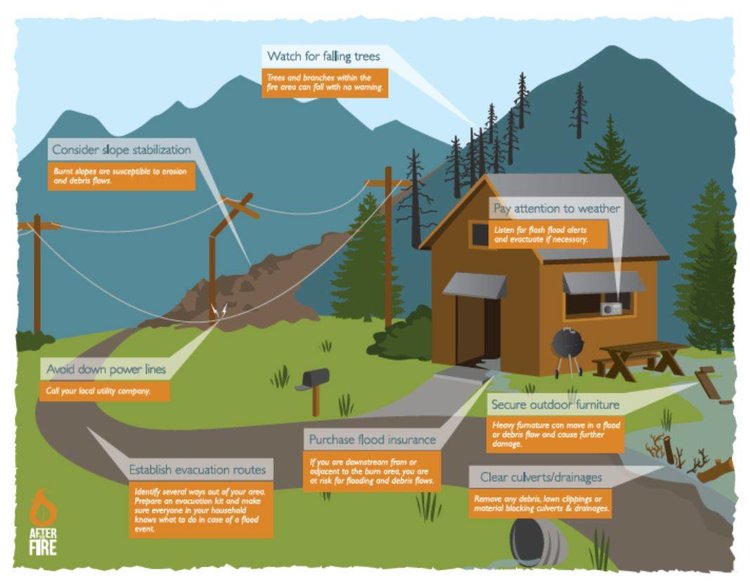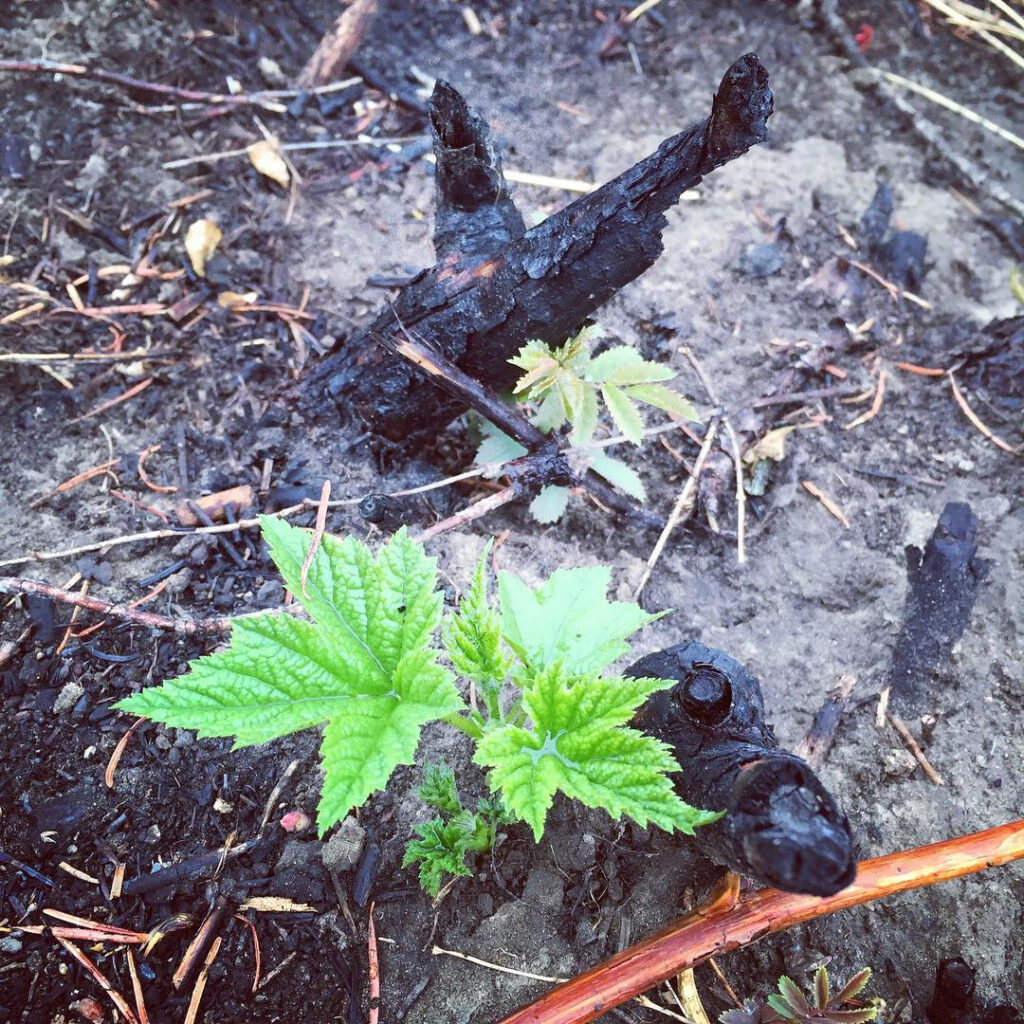We Will Accept.
We Will Respond.
We Will Rebuild.
We Will Recover.
Just as our forests adapt to wildfire as a natural part of our ecosystem, our combined capacity as individuals to adapt and overcome adversity will result in greater community resiliency. The landscape will recover. However, over the next five years there may be an increased risk of post-fire impacts such as flooding, debris flows, erosion, and downed trees. As residents and landowners we can take steps to prepare for these post-fire impacts.
A Community Resilient
As a resident you likely have questions about returning home. If you experienced property damage or loss, many of those questions will center around your insurance policy. The Institute for Building and Home Safety has prepared the You Can Go Home Again materials to guide you through the recovery process.
Resilient Forest Communities
Our community is dependent upon forests for our cultural identity, well-being, and livelihood. Our community resiliency is interconnected with our capacity to act as forest and land stewards. The response to wildfire will drive how we adapt to changing ecological, economic, and social conditions.
Preparing For After the Fire
The CWSC is pleased to share our After the Fire video with you to learn what you can do before and after wildfire.
*For use during a workshop or classroom setting, please see our companion discussion guide.
A MUST READ: Joplin Pays it Forward – Leaders Share Recovery Lessons Learned
After the Fire Quick Links
- Returning Home
- Homeowner Resources
- Landowner Resources
- For Businesss
- Surviving Wildfire by Linda Masterson is an excellent resource. Order it from Amazon!
- Going Home Again (IBHS)
- Protecting Health After a Wildfire (Chelan-Douglas Health District)
- Wildfire-related Services in North Central Washington (excel spreadsheet, CWSC)
- After Wildfire New Mexico has comprehensive information. The site is easy to use and applicable for communities outside of New Mexico.

The After the Fire Toolkit has been developed to help community coalitions and emergency responders communicate after the fire information clearly and quickly.
Clean-up
- Fire Retardant Clean-up (US Forest Service)
- Home clean-up (Colorado Extension)
- Report Damage to Chelan County Assessor, Assessment FAQs
Rebuilding
Central Washington Fire Recovery has local information for Central Washington and provides one example of how Burned Area Emergency Response (BAER) Team information can be provided to the public
National Timber Tax – Tax Treatment Of Timber
The University of California has comprehensive “Recovering from Wildfire” guide for forest landowners. The guide describes how to assess resource damage, apply erosion control measures, evaluate economic losses, and a summary of tax implications resulting from the loss of timber and damage to property.
CWSC offers cost share opportunities and technical assistance for forest landowners recovering from wildfire.
If your timber harvest has been affected by wildfire, please notify the Washington Department of Natural Resources, Forest Practices.
Immediately after the fire
- Review the “After the Fire” toolkit for residents, landowners, and businesses
- Contact CWSC for recovery assistance resources and flood insurance.
- Follow the steps outlined in the Small Business Administration’s Wildfire Preparedness Checklist after the wildfire.
- Dispose of disaster debris in accordance with the Environmental Protection Agency (EPA).
- Work with the Chamber and BVBA to help create key messages for advertising and marketing.
- Support our community! Provide “After the Fire” discounts to promote community resilience.
Longterm Recovery
Long term recovery can be daunting immediately post-fire. An assortment of guides and resources have been developed to help.
- American Planning Association Post-Disaster Recovery
- Disaster Recovery Programs (includes links to potential funding)
- National Voluntary Organizations Active in Disaster
- Long Term Recovery Organization Overview (United Way North Carolina)
- Holistic Disaster Recovery (UC Boulder)
- Long-term Community Recovery Planning Process: A Self-Help Guide
- Managing and Operating A Disaster Long-Term Recovery Organization has information relevant to both secular and religious organizations.

